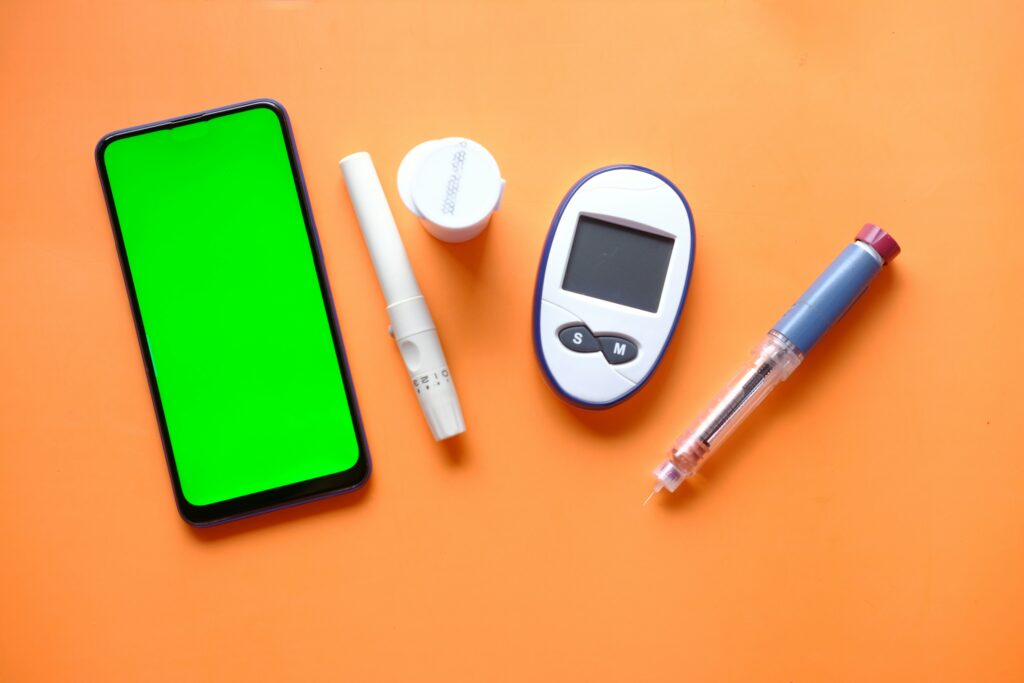Managing diabetes is an everyday challenge that can be demanding and relentless. However, with the advent of digital technology, patients now have access to numerous educational tools that can help manage their condition more effectively. Welcome to our comprehensive guide titled, “Empower Yourself: Mastering Diabetes with Digital Education Tools for Better Health Management.”
In the following sections, we delve into the myriad of digital resources available to patients today, providing a roadmap to harnessing the power of these tools for optimal diabetes management. This exploration goes beyond just mobile applications, incorporating innovative web platforms, online communities, and advanced health trackers.

The journey towards better health management starts with understanding the disease, how it affects the body, and the role of lifestyle changes in managing it. With the help of digital education tools, patients can enhance their knowledge, thereby empowering themselves to take control of their health.
Our guide promises to shed light on how to sift through the information overload, highlighting reliable and user-friendly digital tools that can support individuals in their quest for better health management. This includes tools that help track blood glucose levels, provide dietary guidance, offer exercise routines, and even mental health support – all tailored to the needs of a diabetic patient.
By the end of our guide, we hope to provide you with the knowledge and confidence to take advantage of the power of digital education tools in managing diabetes. The ultimate goal is not just to survive, but to thrive, turning diabetes management from a daunting task into an achievable daily routine. Together, let’s explore how digital education tools can help in mastering diabetes for better health management. 🌟💪🏽🔍📲👩🏽⚕️
Digital Education Tools: A Game Changer in Diabetes Management
The rapid advancement in technology has played a pivotal role in transforming healthcare, including the management of chronic illnesses such as diabetes. Among these developments, digital education tools have emerged as a groundbreaking innovation. Leveraging the convenience of smart devices, these tools provide patients with essential knowledge to manage their diabetes effectively.
Understanding the Role of Digital Education Tools in Diabetes Management
Digital education tools are software or applications designed to provide health education in an interactive manner. These platforms typically contain informational material about the disease, including symptoms, potential complications, and necessary lifestyle changes. For diabetes, digital education tools may include modules on diet planning, medication management, and strategies for maintaining stable blood glucose levels.
Moreover, they can offer personalized feedback and reminders, enabling patients to adhere to their treatment plans consistently. The accessibility of these tools makes it easier for patients to absorb and apply this knowledge in their daily lives.
Types of Digital Education Tools
Numerous digital education tools exist in the market, each offering unique features. They can be broadly categorized into three types:
- Mobile Applications: These are smartphone apps that provide comprehensive information on diabetes management. Many of these apps are equipped with features like meal planning, medication reminders, and glucose tracking.
- Web-based Platforms: These platforms provide online courses, webinars, or e-books on diabetes education. They often include interactive quizzes and forums for patients to discuss their experiences and learn from each other.
- Wearable Devices: Wearable technology, such as smartwatches, can track biometric data and provide real-time feedback to users. Some devices even alert the user when their blood glucose levels are too high or too low.
Benefits of Digital Education Tools
Digital education tools are playing a transformative role in healthcare, particularly in chronic disease management like diabetes. These tools—ranging from mobile apps and online courses to interactive platforms and virtual coaching—are making health education more accessible, personalized, and impactful than ever before.
For patients managing complex, long-term conditions, digital tools offer more than just information—they provide ongoing support, self-management guidance, and real-time feedback that empower individuals to take control of their health.
🌍 Accessibility and Convenience
One of the most significant advantages of digital education tools is their 24/7 availability. Patients can engage with educational content from the comfort of their homes, during breaks at work, or while on the go.
Key Benefits:
- 📱 Anytime, anywhere learning: Individuals can log in when it suits them, reducing the need for in-person appointments or travel.
- 🧠 Self-paced education: Users can revisit modules, videos, or lessons as needed, reinforcing knowledge and building confidence.
- 🌐 Multilingual and inclusive content: Many platforms offer content in multiple languages and formats (e.g., audio, visual, interactive), expanding access for diverse populations.
In diabetes management, where understanding lifestyle changes, medication timing, and blood glucose monitoring is crucial, this level of flexibility boosts adherence and engagement significantly.
🎯 Personalization
One of the most powerful features of modern digital education tools is their ability to deliver personalized learning experiences. Unlike traditional one-size-fits-all approaches, these platforms leverage user behavior, preferences, goals, and real-time health data to tailor educational content to the individual.
How Personalization Works:
- 📊 Data-driven insights: Apps can track metrics like blood glucose levels, dietary habits, or physical activity, and use this data to adapt content.
- 🧩 Adaptive learning pathways: Platforms may adjust the complexity or focus of educational modules based on user progress or feedback.
- 🔁 Behavioral reminders and nudges: Personalized alerts can help users stay on track with medication, diet, or exercise by recognizing patterns and suggesting small, achievable goals.
For patients managing diabetes, this means receiving the right information at the right time, such as dietary tips during high glucose readings or motivation strategies when engagement drops. The result is an experience that feels relevant, supportive, and easier to follow.
💪 Empowerment
Digital education tools do more than just inform—they empower individuals to become proactive managers of their own health. By improving knowledge and self-awareness, these tools encourage users to take initiative, make informed decisions, and communicate more effectively with healthcare providers.
Empowerment in Action:
- 📘 Understanding their condition: Patients gain clarity on the “why” behind treatments and lifestyle changes, increasing compliance.
- 🎯 Setting and tracking goals: Whether it’s lowering A1C levels or sticking to a walking routine, digital platforms help users set realistic goals and celebrate progress.
- 🤝 Building confidence: As patients apply what they’ve learned and see results, they develop trust in their ability to manage their condition independently.
This shift from passive recipient to engaged participant not only improves health outcomes, but also enhances overall quality of life, emotional well-being, and long-term motivation.
Challenges in Implementing Digital Education Tools
Digital education tools are revolutionizing the landscape of health education, making it more dynamic, interactive, and patient-focused. From chronic disease management apps to virtual learning platforms for healthcare professionals, these tools offer innovative ways to enhance understanding, encourage self-care, and improve outcomes. However, the path to successful implementation is not without its hurdles.
Despite their transformative potential, several systemic, technical, and ethical challenges continue to impede widespread adoption. For organizations, educators, and healthcare providers looking to embrace digital education, it is essential to recognize and address these barriers early in the process. Doing so ensures that digital solutions are not only effective, but also equitable, secure, and sustainable.
Whether the challenge lies in limited access to technology, privacy and data security concerns, or resistance to digital adoption, understanding these issues is the first step toward building more inclusive, resilient, and impactful educational ecosystems in healthcare.
📉 Technological Limitations and the Digital Divide
One of the most significant barriers to digital education is unequal access to technology. Not all patients or learners possess the necessary devices—such as smartphones, tablets, or computers—or the reliable internet connectivity required to access online platforms. This disparity, often referred to as the digital divide, disproportionately affects:
- Rural communities
- Older adults unfamiliar with digital tools
- Low-income households
- Individuals with physical or cognitive disabilities
Additionally, even when access is available, digital literacy remains a hurdle. Users may struggle with navigating apps, logging into platforms, or understanding user interfaces, which limits the effectiveness of digital learning interventions. Without targeted support, technological advancements risk leaving the most vulnerable populations behind.
🔐 Privacy and Data Security Concerns
With the integration of technology into healthcare and education, data privacy has become a critical concern. Digital education tools often collect personal information, behavioral data, and in healthcare settings, sensitive medical data. If these platforms do not implement robust security measures, users may be exposed to:
- Data breaches
- Unauthorized access
- Identity theft
- Misuse of health-related information
Maintaining user trust requires compliance with global and regional privacy laws—such as HIPAA (U.S.), GDPR (Europe), or LGPD (Brazil)—and the implementation of encryption, consent protocols, and transparent data practices. Without clear communication about how data is collected, stored, and used, adoption rates may falter due to fear of surveillance or exploitation.
✅ Overcoming the Barriers
To truly unlock the potential of digital education tools, efforts must focus on:
Building trust with strong security frameworks, ethical data practices, and transparency.
Expanding access to technology through community partnerships, public infrastructure, and donation programs.
Improving digital literacy via training, user-friendly design, and multilingual support.
The Future of Digital Education Tools in Diabetes Management

As healthcare continues its rapid digital transformation, digital education tools are poised to become central to the management of chronic diseases—and diabetes is a prime area of opportunity. The convergence of telehealth, wearable technology, and AI-driven platforms is creating a future where diabetes education is not only more accessible, but also deeply personalized and interactive.
With an increasing number of patients embracing mobile health apps, remote consultations, and online self-management platforms, the acceptance of digital solutions in healthcare is stronger than ever. In this new landscape, education is no longer confined to clinics—it travels with the patient, supporting them in real time.
🤖 Emerging Technologies Driving the Future
Artificial Intelligence (AI) and Machine Learning
- Predictive capabilities: AI algorithms can anticipate fluctuations in blood sugar based on behavioral and health data, enabling preemptive educational alerts.
- Personalized learning pathways: Machine learning can adapt content delivery based on a patient’s learning style, engagement history, and progress.
- Risk identification: AI can detect early signs of complications or non-adherence and prompt targeted educational interventions.
Integration with Wearables and Smart Devices
- Devices like continuous glucose monitors (CGMs) and smart insulin pens can sync with education platforms to deliver real-time coaching, enhancing patient responsiveness and safety.
Gamification and Engagement
- Future tools will increasingly use game mechanics, avatars, progress tracking, and reward systems to keep patients engaged and motivated to learn.
A New Era in Diabetes Education
Digital education tools are not just supplementary aids—they are becoming essential pillars in diabetes care. Their ability to deliver timely, relevant, and engaging information enables patients to make informed decisions, reduce complications, and lead healthier lives.
As technology advances and healthcare continues to shift toward a patient-centered, preventative model, these tools will evolve into intelligent digital companions that support individuals every step of the way. From AI-driven insights to continuous learning ecosystems, the future of diabetes management is proactive, personalized, and empowering.
In essence, digital education tools are reshaping not only how we learn about diabetes, but how we live with it—creating a healthier, more connected future for all.
Conclusion
“Empower Yourself: Mastering Diabetes with Digital Education Tools for Better Health Management” has presented an innovative approach to tackling diabetes, a global health crisis. This method not only highlights the importance of self-empowerment but also emphasizes the benefits of technology in managing and understanding this chronic illness. As discussed, digital tools can provide comprehensive, real-time feedback, enabling individuals to monitor their health effectively. By leveraging these resources, patients can make informed decisions, resulting in improved health outcomes. Furthermore, the personalization aspect of these tools allows for a tailored approach, addressing each individual’s unique needs.
However, it’s essential to remember that these digital solutions are not standalone remedies but rather complementary tools, supporting traditional treatment plans. Regular consultation with healthcare professionals remains critical for optimal diabetes management. Moreover, continual education and awareness about diabetes should be encouraged to empower more individuals, reducing the global burden of this disease.
As we navigate through the digital age, healthcare systems must adapt and integrate these modern tools, prioritizing patient education and self-management. By doing so, we can revolutionize diabetes care, promoting a healthier and more empowered society. Ultimately, digital education tools serve as valuable allies in the battle against diabetes, fostering a better understanding and management of this pervasive condition.



